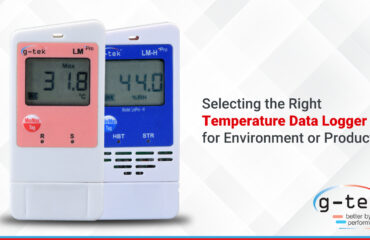
There is a set of inquiries that is often raised to data loggers provider, whether there is a specific type of data logger that can monitor the data for freezers or refrigerators. Based on the experience and the set of questions surrounded by the customers, we recommend not using data loggers to put it in the freezer.
Well, it would sound like an easy way, but all you need is to figure out to get the probe over the information as to why not to keep the data logger in the freezer cabinet. Here are curated reasons we would like to share, and these are the viable reason based on the research and development.
Reason- 1
The wireless devices that are enabled to be used for monitoring the data in the freezer will impact the user to drastically reduce the wireless signals. These prompt devices are wireless data loggers connected with WiFi, Bluetooth, or any other type of wireless radio. To be more precise, it is like using a cell phone in the elevator that will, at the time, provide connectivity, and sometimes not.
Now here, if the door of your freezer is of glass, the possibility of signals getting passed out is more viable. But if the door is of metal or any other material, the possibility of relying on the signal can be monitored to a certain extent. Considering all these aspects, there is a possibility that the device will not have great connectivity, and sharing of the data will not be accurate and data-driven.
Reason-2
Another key reason for not keeping the data logger in the freezer is the draining of the capacity of the battery. During the process of the device being integrated into the freezer, if the temperature gets reduced or is low, it will be very obvious that the capacity of the batter will be reduced. A common thumb rule that is applied here is that if the capacity of the lithium cell reduces in the data loggers, the capacity of the logger will reduce to 50% at a temperature of 0°F.
Also, the resistance power of the internal system of the batter will be increased to an extent, which will reduce the output voltage. Considering all these aspects will lead to the frequency of replacing the battery. There are clients who come up with the complaint that the batteries get drained and not lasting even for a month. Upon research, it was found that these data loggers were directly kept in the freezer that was operating at 0°F.
Reason -3
The next is, if you have an LCD device and with that, you need to read the data or alarm information, it can be difficult in the process of low temperature. If the LCDs installed are the standard ones, the usage of it is in the most low-cost data loggers. The process and design of it are to operate to about 32°F. As the process of the temperature getting decreases, the displaying of the data will be blurry, and eventually, it will not be updated timely on the screen. Normally, this does not cause permanent damage to the display. Once it warms up, it will operate normally, but we have seen cases where continued exposure to low temperatures caused an LCD to fail.
Reason- 4
Finally, there is always a risk attached to using data loggers kept in the freezer. When these data loggers are removed from the freezer, there is a side effect to it, and it damages the logger from internal condensation. You may be asked to pull the device from the freezer to download the stored data at some point.
Once these freeze data loggers are removed from the freezer, the ice water will be dewing back as it will be on a warm day. If this situation happens, the logger will be getting out of condensation. And we all know that moisture and electronic devices don’t mix well! Having this issue, it is observed that the device needs to be replaced, which will increase the overall cost and maintenance.
Final Words:
These are the four critical reasons one should consider before considering keeping the data loggers in the freezer. If you require more details, all you can do at any point is connect with our team, and we at G-Tek will assist you.






